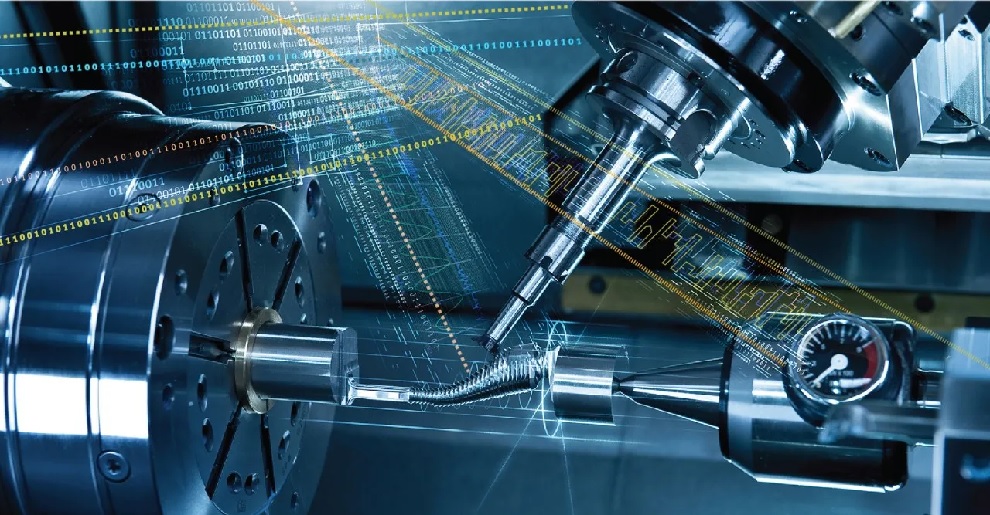Smart manufacturing advantages for parts manufacturing

The industrial machinery industry is continuing to witness astounding technological advancements based on smart manufacturing. However, with ongoing changes comes the challenge of validating and managing modern manufacturing and assembly operations to achieve optimum quality and optimize cost.
Our last blog on this topic discussed how smart manufacturing allows for a comprehensive digital twin. Many manufacturers claim they have a digital twin of the machine, which is valid – they have 3D models or representation. However, a digital twin is more than designing parts. Even though people see a machine as a mechanical component; however, adaptability drives machines in other ways. Both servo-motor drives and software are creating flexible and adaptable machines.
Our focus in this blog is on parts production. Smart Manufacturing by Siemens Digital Industries Software provides software solutions for implementing smart manufacturing to improve parts manufacturing. There are many advantages to industrial machinery manufacturers using smart manufacturing, including execution management, bill of process, and materials.
Manufacturing execution management
There are various scales of manufacturing from a volume perspective when building PLCs, HMIs or motor controllers – creating enormous volume. So, every ounce of weight and time is an opportunity for saving money. An operations control management execution or manufacturing execution management tool provides fine-grained analysis to drive value into the manufacturing process.
It is essential to discuss the low volume of highly complex operations, with the realization of unique manufactured order machinery and its correlation with each variant. The common thread is discovering how the assembly is orchestrated in a fine-grain manner to feed that information into the engineering space and provide continuous closed-loop improvement. This is a lesson learned from the relationship with Siemens AG partners.
Manufacturing parts – bill of process and materials
Another competitive advantage of manufacturing execution management is that we know the bill of process and materials. This is the recipe for building a machine – not necessarily the components but the methodology and how to construct each part and roll that into parts manufacturing assembly for optimization. Consequently, it provides a snapshot of what can be imported into the schedule because it has the assembly setups necessary to create it.
Similarly, it’s crucial to have the ability within the data management products to pull apart the bill of materials and reconfigure it to fit the manufacturing operation effectively. It is vital to group parts in assembly for manufacturing the parts, common part requirements or assembly of the machine in a different order than the engineering bill.
Historically, there is a delicate balance between engineering and manufacturing and a throw-it-over-the-wall mentality. Therefore, it is necessary to leverage the capability with manufacturing execution and retain the connection to the engineering bill of materials, thus eliminating conflict to allow manufacturing customization in viewing the bill of materials. The result is a more efficient operation management process. Siemens is the only solution provider with the end-to-end solution, from manufacturing, design, service and back into the business system.
Benefits of smart manufacturing
Smart manufacturing delivers collaborative knowledge with a forward-thinking, innovative mindset that promotes premium quality of product smart manufacturing while optimizing cost. In addition, this learning approach creates a competitive edge for solution providers to have an end-to-end solution, from manufacturing and design to service and back into the business system.
Siemens uses a comprehensive approach to smart manufacturing by learning from each other and executing their software solutions to customers and knowing what works and doesn’t work for them. They use a feedback loop that is forward-looking. Siemens’ approach lends towards conservative, but their manufacturers are always looking for ways to take advantage of the next big thing. So, it pulls them toward how they can provide for their customer and be forward-thinking when it comes to the manufacturing execution. Companies are trying to squeeze every ounce of profit out of the manufacturing process. There are not many companies the size of Siemens with both the manufacturing capability and the industry breadth of knowledge to provide complete software solutions.
For a deeper dive, check out our archived podcast series for Smart Manufacturing.
We always look forward to offering new perspectives on smart manufacturing, so stay tuned for more innovative, insightful blogs and podcasts on this topic.
Siemens’ software solutions
Siemens’ Xcelerator portfolio helps companies of all sizes create and leverage digital twins that provide organizations with new insights, opportunities, and automation levels to drive innovation.
For more information on Siemens Digital Industries Software products and services, visit siemens.com/software or follow us on LinkedIn, Twitter, Facebook and Instagram.
Siemens Digital Industries Software – where today meets tomorrow.


